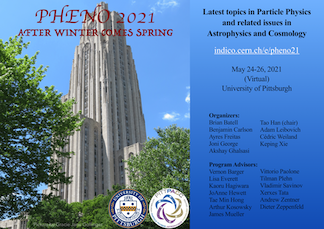Speaker
Description
Determining the distribution of dark matter in the Milky Way Galaxy is crucial to grounding searches for the particles comprising dark matter. Measurements of the galactic dark matter content currently rely on equilibrium assumptions to infer the forces acting upon stars from the distribution of observed velocities. Millisecond pulsars, with temporal stability rivaling even some terrestrial atomic clocks at long timescales, can be used as an ensemble of accelerometers in the galactic neighborhood. From these pulsars we can directly extract the local galactic acceleration. We present two methods of extracting the galactic acceleration. First, from pulsar spin period measurements, we demonstrate acceleration sensitivity with about 1$\sigma$ precision using 117 pulsars. In a second method, we analyze the orbital periods of 13 binary pulsar systems that eliminates systematics associated with pulsar braking and results in a local acceleration of $\left(1.7\pm0.5\right)\times{10}^{-10}\mathrm{ m/s}^2$ in good agreement with expectations. This work is a first step toward dynamically measuring acceleration gradients that will eventually inform us about the dark matter density distribution in the Milky Way Galaxy.
